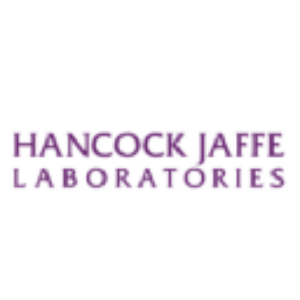First U.S. Patent Issues on Hancock Jaffe VenoValve
Hancock Jaffe Laboratories (NASDAQ:HJLI) announced the issuance of a U.S. patent for its VenoValve, aimed at treating Chronic Venous Insufficiency (CVI). The patent, U.S. number 10,959,841, reflects the company's commitment to innovation. Additionally, the FDA approved the Investigational Device Exemption for the SAVVE study, which will enroll 75 patients across 20 centers. CVI affects approximately 2.4 million Americans, costing over $38 billion annually in medical expenses. Hancock Jaffe aims to establish the VenoValve as a new standard of care for CVI.
- Issuance of U.S. patent for VenoValve strengthens intellectual property position.
- FDA's quick approval of Investigational Device Exemption for SAVVE study supports rapid progress in clinical trials.
- Potential market for VenoValve is substantial, with 2.4 million CVI sufferers in the U.S.
- None.
Insights
Analyzing...
IRVINE, CA / ACCESSWIRE / April 7, 2021 / Hancock Jaffe Laboratories, Inc. (NASDAQ:HJLI), a developer of medical devices that restore cardiac and vascular health, today announced that the United States Patent and Trademark Office (USPTO) has issued the first patent covering the company's VenoValve. The patent is entitled Implantable Vein Frame and is U.S. patent number 10,959,841.
The company recently announced that only twenty-eight (28) days after filing, the U.S. Food and Drug Administration (FDA) approved the company's Investigational Device Exemption (IDE) application to begin the U.S. pivotal trial for the VenoValve®. Known as the SAVVE study, the trial is a prospective, non-blinded, single arm, multi-center study of 75 Chronic Venous Insufficiency (CVI) patients to be enrolled at up to 20 U.S. centers.
"We will continue to work with agencies like the FDA and USPTO, and other regulatory authorities throughout the world towards our ultimate goal of reaching the millions of patients suffering from CVI", said Hancock Jaffe CEO, Robert Berman. "We believe that the VenoValve will set a new standard of care for CVI patients and will establish Hancock Jaffe as a leading provider of innovative medical devices for peripheral vascular disease".
CVI occurs when valves inside the veins of the leg fail, causing blood to flow in the wrong direction (reflux), and increasing venous pressure (venous hypertension). This results in leg swelling, pain, open sores (venous ulcers) and reduced mobility for patients. CVI makes everyday tasks such as bathing, sleeping and walking extremely difficult for patients. The current standard of care for deep venous CVI sufferers includes compression garments and leg elevation.
Leading hospitals and top vascular surgeons throughout the U.S. have expressed interest in participating in the SAVVE study. The company has begun the process of fulfilling conditions for study initiation outlined by the FDA and seeking Institutional Review Board (IRB) and other necessary approvals from potential SAVVE sites. The company expects to begin patient enrollment in the third quarter of 2021 and will provide periodic updates.
Approximately 2.4 million people in the U.S. suffer from CVI due to reflux in the deep venous system. Estimates indicate that direct medical costs from CVI in the U.S. exceed
About Hancock Jaffe Laboratories, Inc.
Hancock Jaffe Laboratories (NASDAQ:HJLI) specializes in developing and manufacturing bioprosthetic (tissue-based) medical devices to establish improved standards of care for treating cardiac and vascular diseases. HJLI currently product candidates include: the VenoValve, a porcine-based valve which is intended to be surgically implanted in the deep venous system of the leg to treat reflux associated with Chronic Venous Insufficiency, and the CoreoGraft, a bovine tissue-based off-the-shelf conduit intended to be used for coronary artery bypass surgery.
Cautionary Note on Forward-Looking Statements
This press release and any statements of stockholders, directors, employees, representatives and partners of Hancock Jaffe Laboratories, Inc. (the "Company") related thereto contain, or may contain, among other things, certain "forward-looking statements" within the meaning of the Private Securities Litigation Reform Act of 1995. Such forward-looking statements involve significant risks and uncertainties. Such statements may include, without limitation, statements identified by words such as "projects," "may," "will," "could," "would," "should," "believes," "expects," "anticipates," "estimates," "intends," "plans," "potential" or similar expressions. These statements are based upon the current beliefs and expectations of the Company's management and are subject to significant risks and uncertainties, including those detailed in the Company's filings with the Securities and Exchange Commission. Actual results (including, without limitation, with respect to our liquidity and future cash position, the timing of filing of our IDE application and beginning patient enrollment, and the VenoValve's ability to fill the unmet medical needs of CVI sufferers) may differ significantly from those set forth or implied in the forward-looking statements. These forward-looking statements involve certain risks and uncertainties that are subject to change based on various factors (many of which are beyond the Company's control). The Company undertakes no obligation to publicly update any forward-looking statements, whether as a result of new information, future presentations or otherwise, except as required by applicable law.
MEDIA CONTACT:
Mariesa Kemble
(608) 850-4745
SOURCE: Hancock Jaffe Laboratories, Inc.
View source version on accesswire.com:
https://www.accesswire.com/639340/First-US-Patent-Issues-on-Hancock-Jaffe-VenoValve







